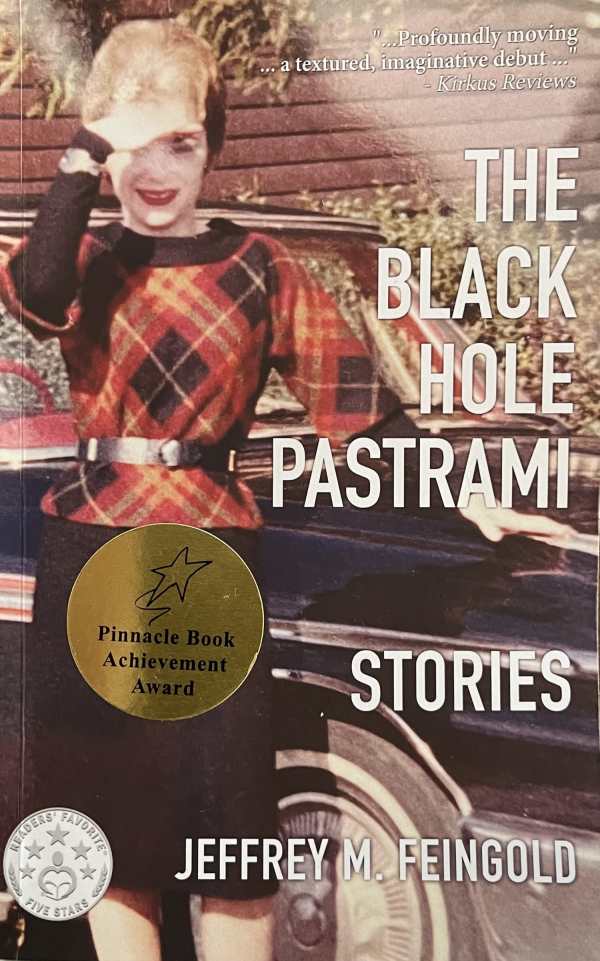The Black Hole Pastrami
Stories
Satisfying and often joyful, these short stories concern family connections and childhood memories.
Jeffrey M. Feingold’s endearing short story collection The Black Hole Pastrami compiles memories of growing up in a Jewish household and being a first-generation American.
Each narrator in the collection looks back on their personal history, resulting in an engaging dialogue between the past and the present. The book’s warm prose further unifies the collection. A kind, playful tone suffuses the stories, allowing even the darker meditations on death and mortality to seem uplifting and life-affirming.
In “The Black Hole Pastrami,” the narrator looks back on his younger self as he buys a pastrami sandwich for his dying father. Rich thoughts spring from this moment in a butcher shop: the man reflects on the aspirations and disappointments he inherited from his father, the unresolved trauma of watching his grandmother die alone, and his inexplicable failure to cry for the deceased members of his family. The sandwich becomes a conduit for connecting with his family and his Jewish Ukrainian roots; through it, he resurrects the tastes and feelings of his childhood.
“The Black Hole Pastrami” is one of several interrelated stories that share a single narrator. With each such entry, facts about and memories of the man’s life build up, resulting in complex, detailed depictions of himself and others. In the end, these particular stories are greater than the sum of their parts. Their narrator’s emotional development is satisfying, even joyful, even as doubts and questions linger regarding his family relationships, his connection to Judaism, and his visit to the Soviet Union.
Indeed, family, memory, and childhood are the book’s recurring themes. Some stories, like “The Buzz Bomb,” in which a group of children plays war games every Saturday, are less concerned with ancestral legacies than they are with nostalgia. Indeed, that story recalls the reckless freedom of midcentury childhoods: the narrator carries a sheet holding Roman candles, window shakers, and buzz bombs with him, introducing a grand universe in a short space. The book’s longest entry, “Here’s Looking at You, Syd,” is a comedic account of an American couple’s efforts to adopt a child from the Soviet Union. Its scope is ambitious, and it includes stereotypes and repetitive jokes that undermine its more interesting questions about the politics of adoption. And in the pithy entry “The Wrong Napkin,” a boy confuses a “feminine napkin” for an ordinary one, opening a space for his father to teach him about sex. However, that entry ends in a too-abrupt manner, with a sex joke.
Quirky, eccentric characters populate the short stories collected in The Black Hole Pastrami.
Reviewed by
Willem Marx
Disclosure: This article is not an endorsement, but a review. The publisher of this book provided free copies of the book and paid a small fee to have their book reviewed by a professional reviewer. Foreword Reviews and Clarion Reviews make no guarantee that the publisher will receive a positive review. Foreword Magazine, Inc. is disclosing this in accordance with the Federal Trade Commission’s 16 CFR, Part 255.


